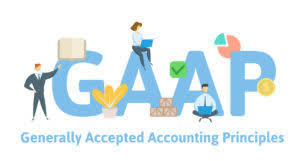Similarly, you learned that crediting the Cash account in the general ledger reduces its balance, yet your bank says it is debiting your checking account to reduce its balance. By having many revenue accounts and a huge number of expense accounts, a company will be able to report detailed information on revenues and expenses throughout the year. The revenues a company earns from selling the products are usually credit in accounts payables on the normal balance.
Example of debit and credit rules:
This usually happens when the company extends credit to its suppliers; the credit is reported as an expense. The expense shifts the balance of the accounts payable from the credit side to the debit side. The normal balance is defined as the balance which would show either credit or debt when all the data from the journal is extracted. The normal balance is calculated by the accounting equation, which says that the assets of a company are equal to the sum of liabilities and shareholder’s equity. For accounts payable, the usual trend for the normal balance is usually credit.
- Since the service was performed at the same time as the cash was received, the revenue account Service Revenues is credited, thus increasing its account balance.
- These are the main types of services that are noted in the accounts payable.
- When a payment is made, the credit entry is recorded on the left side and the debit entry is recorded on the right side.
- As such, in a cash account, any debit will increase the cash account balance, hence its normal balance is a debit one.
- When a company purchases goods or services on credit, it records a credit entry in the Accounts Payable account, increasing its balance.
These rules say if an entry should be a debit or a credit. This is vital for keeping accurate financial records and showing a company’s financial health. A solid understanding of debits and credits helps keep financial records clear and effective. Accounting transactions change general ledger accounts through these entries.
Debit and Credit
In extremely rare cases, the companies extend the credit to their suppliers. The big companies usually provide a credit https://www.rusempire.ru/fotografii/pervaya-mirovaya-voyna/avtomobili-pervoy-mirovoy-voyni/avtomobili-pervoj-mirovoj-vojny-7727.html line to their important suppliers during economic distress. To get started, let’s review some facts that you should already be aware of as a bookkeeper, accountant, small business owner, or student. Each account can be represented visually by splitting the account into left and right sides as shown. This graphic representation of a general ledger account is known as a T-account. A T-account is called a “T-account” because it looks like a “T,” as you can see with the T-account shown here.
Which Accounts Have a Normal Debit Balance? Which Accounts Have a Normal Credit Balance?
In general, debits are used to increase asset and expense accounts, while credits are used to increase liability and equity accounts. A contra account is one which is offset against another account. So for example there are contra expense accounts such as purchase returns, contra revenue https://www.rusempire.ru/rossijskaya-imperiya/samoderzhavie/420-istoricheskie-sudby-natsii.html accounts such as sales returns and contra asset accounts such as accumulated depreciation.
Cash account
For example, Cost of Goods Sold is an expense caused by Sales. Insurance Expense, Wages Expense, Advertising Expense, Interest Expense are expenses matched with the period of time in the heading of the income statement. Under the accrual basis of accounting, the matching is NOT based on the date that the expenses are paid. If you are new to the study of debits and credits in accounting, this may seem puzzling. After all, you learned that debiting the Cash account in the general ledger increases its balance, yet your bank says it is crediting your checking account to increase its balance.
The credit side of a liability account represents the amount of money that the company owes to its creditors. Understanding how to read an accounting chart can give you valuable insights into a company’s financial condition. You can use a cash account to record all transactions that involve the receipt or disbursement of cash. This means that when you make a debit entry to an asset account. While a debit balance occurs when the debits exceed the credits.
Time Value of Money
- They guide accountants and bookkeepers in journalizing financial transactions and updating ledger accounts of their business entity.
- The credit side of a liability account represents the amount of money that the company owes to its creditors.
- The Normal Balance of an account is either a debit (left side) or a credit (right side).
- The normal balance of an expense account is a debit balance.
- Since expenses are usually increasing, think “debit” when expenses are incurred.
Liabilities are what a company owes, like Accounts Payable and Notes Payable, and rise with credits. Equity accounts, like Common Stock, show ownership investment and earnings. They too have a credit balance, showing long-term financial benefits. Debits and credits shape our financial standings in reports like the balance sheet and income statement. This shows the resources used in businesses or personal finance activities. Revenues and gains are recorded in accounts such as Sales, Service Revenues, Interest Revenues (or Interest Income), and Gain on Sale of Assets.
Prepaying insurance, an asset, is debited because it promises future benefits. This is because its normal balance for prepaid expenses is a debit. On the other hand, a credit entry often means more liabilities, equity, or income. For instance, when https://www.igry-multiki.ru/igra-malyshka-hejzel-yurist/ transactions boost accounts receivable, it’s marked as a debit. Meanwhile, the credit part lessens the accounts receivable.















